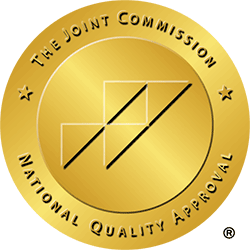
Intergenerational trauma is a concept that describes how the effects of trauma can be passed down from one generation to the next. At BriteLife Recovery, we recognize that understanding intergenerational trauma is essential for addressing the underlying causes of certain mental health and substance use issues. By examining how trauma transcends generations, individuals can begin to make sense of their experiences and embark on a path to healing and recovery.
Defining Intergenerational Trauma
Intergenerational trauma, also known as transgenerational or multigenerational trauma, refers to the psychological and emotional effects of trauma that are not confined to the person who directly experienced the traumatic event but extend to their descendants. This type of trauma can stem from large-scale, community-wide events such as war, genocide, or systemic oppression, as well as from more personal experiences, including abuse, neglect, or family violence.
The trauma experienced by one generation often influences the emotional and behavioral responses of subsequent generations. For instance, parents who have not fully processed their trauma may unintentionally pass on maladaptive coping mechanisms or exhibit behaviors that impact their children’s emotional development.
How Does Intergenerational Trauma Manifest?
Intergenerational trauma can manifest in various ways and often affects family dynamics and individual behaviors. Some common signs include:
- Unexplained Anxiety or Depression: Descendants of trauma survivors may experience anxiety or depression without understanding its source. This can create confusion, as they may not link their emotional challenges to past traumas within their family.
- Patterns of Dysfunctional Coping: Families impacted by intergenerational trauma may display recurring patterns of substance abuse, emotional detachment, or other maladaptive behaviors. These patterns often arise as a means of coping with unresolved emotional pain that has been passed down.
- Difficulty in Forming Healthy Relationships: Emotional trauma can influence how individuals interact with others. For instance, trust issues or a heightened sense of vigilance may be prevalent in families affected by trauma, making it challenging to form secure attachments.
- Low Self-Esteem and Identity Issues: Growing up in a household marked by unprocessed trauma can lead to low self-worth and identity struggles. Children may feel burdened by the emotional legacy of their parents or grandparents and struggle with a sense of who they are.
The Science Behind Intergenerational Trauma
Research has shown that trauma can have biological effects that extend beyond the immediate individual. Studies on epigenetics have revealed that traumatic experiences can alter gene expression, influencing how future generations respond to stress. This means that while the trauma itself isn’t genetically passed on, the way one’s body and mind respond to stress may be influenced by the experiences of previous generations.
Healing from Intergenerational Trauma
Healing from intergenerational trauma involves recognizing its existence, understanding its impact, and actively working to break the cycle. Here’s how BriteLife Recovery can help:
- Comprehensive Therapy: Our programs incorporate various therapeutic approaches, including trauma-focused therapy, Cognitive Behavioral Therapy (CBT), and family counseling. These methods help individuals understand and process trauma, develop healthier coping mechanisms, and foster resilience.
- Holistic Approaches: Healing is not just about addressing symptoms but about nurturing the mind and body as a whole. BriteLife Recovery incorporates mindfulness practices, yoga, and other holistic activities that help individuals connect with themselves and promote emotional well-being.
- Family Support Programs: Addressing intergenerational trauma often requires family involvement. Our family support programs provide education and therapy that help families communicate effectively, break patterns of trauma, and support each other in healing.

Conclusion
Intergenerational trauma can have profound effects on families and individuals, influencing behaviors, relationships, and emotional well-being. However, recognizing its presence and taking steps to address it can lead to significant healing and growth. At BriteLife Recovery, we are committed to providing the support and tools necessary for overcoming intergenerational trauma and building a healthier, more resilient future. If you or a loved one are dealing with the effects of trauma, reach out to BriteLife Recovery for compassionate care and personalized treatment.
SPEAK WITH AN ADDICTION SPECIALIST



